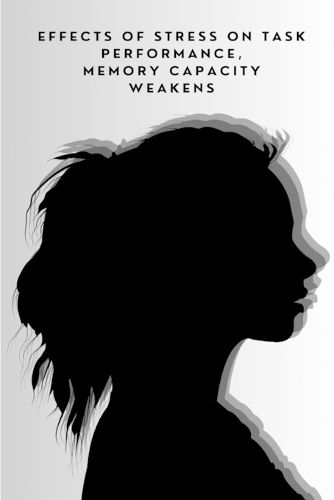Readings Newsletter
Become a Readings Member to make your shopping experience even easier.
Sign in or sign up for free!
You’re not far away from qualifying for FREE standard shipping within Australia
You’ve qualified for FREE standard shipping within Australia
The cart is loading…






This title is printed to order. This book may have been self-published. If so, we cannot guarantee the quality of the content. In the main most books will have gone through the editing process however some may not. We therefore suggest that you be aware of this before ordering this book. If in doubt check either the author or publisher’s details as we are unable to accept any returns unless they are faulty. Please contact us if you have any questions.
Major formulations of stress are presented (Cannon, 1932; Selye, 1951-1956) both to
clarify the nature of what has proved to be a familiar but vague construct, and also to provide
background to the theoretical context (see Koolhaas et al., 2013, for a review). In Chapter 1,
the interplay between stress and Working Memory (WM) is introduced where WM: (a)
represents a 'domain-free' or 'domain-general' ability to control attention, (b) is separable
from short-term memory (STM), and (c) is an important component of the cognitive
architecture most affected by stress (Schoofs, Preuss, & Wolf, 2008; and Wolf & Smeets,
2009).
Current immediate-memory theories (e.g., cognitive interference theories; see Eysenck,
Derakshan, Santos, & Calvo, 2007) are reviewed in the following chapters, chapters 2 and 3,
which represent a robust approach to stress and cognition. The main focus is on anxiety--a
form of stress (Mauricio, 2009)--within general populations rather than within anxious ones,
and there is an emphasis on individual difference characteristics in anxiety as a disposition or
trait, typically assessed by self-report scales of anxiety such as Spielberger's State-Trait
Anxiety Inventory.
$9.00 standard shipping within Australia
FREE standard shipping within Australia for orders over $100.00
Express & International shipping calculated at checkout
This title is printed to order. This book may have been self-published. If so, we cannot guarantee the quality of the content. In the main most books will have gone through the editing process however some may not. We therefore suggest that you be aware of this before ordering this book. If in doubt check either the author or publisher’s details as we are unable to accept any returns unless they are faulty. Please contact us if you have any questions.
Major formulations of stress are presented (Cannon, 1932; Selye, 1951-1956) both to
clarify the nature of what has proved to be a familiar but vague construct, and also to provide
background to the theoretical context (see Koolhaas et al., 2013, for a review). In Chapter 1,
the interplay between stress and Working Memory (WM) is introduced where WM: (a)
represents a 'domain-free' or 'domain-general' ability to control attention, (b) is separable
from short-term memory (STM), and (c) is an important component of the cognitive
architecture most affected by stress (Schoofs, Preuss, & Wolf, 2008; and Wolf & Smeets,
2009).
Current immediate-memory theories (e.g., cognitive interference theories; see Eysenck,
Derakshan, Santos, & Calvo, 2007) are reviewed in the following chapters, chapters 2 and 3,
which represent a robust approach to stress and cognition. The main focus is on anxiety--a
form of stress (Mauricio, 2009)--within general populations rather than within anxious ones,
and there is an emphasis on individual difference characteristics in anxiety as a disposition or
trait, typically assessed by self-report scales of anxiety such as Spielberger's State-Trait
Anxiety Inventory.